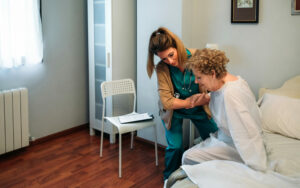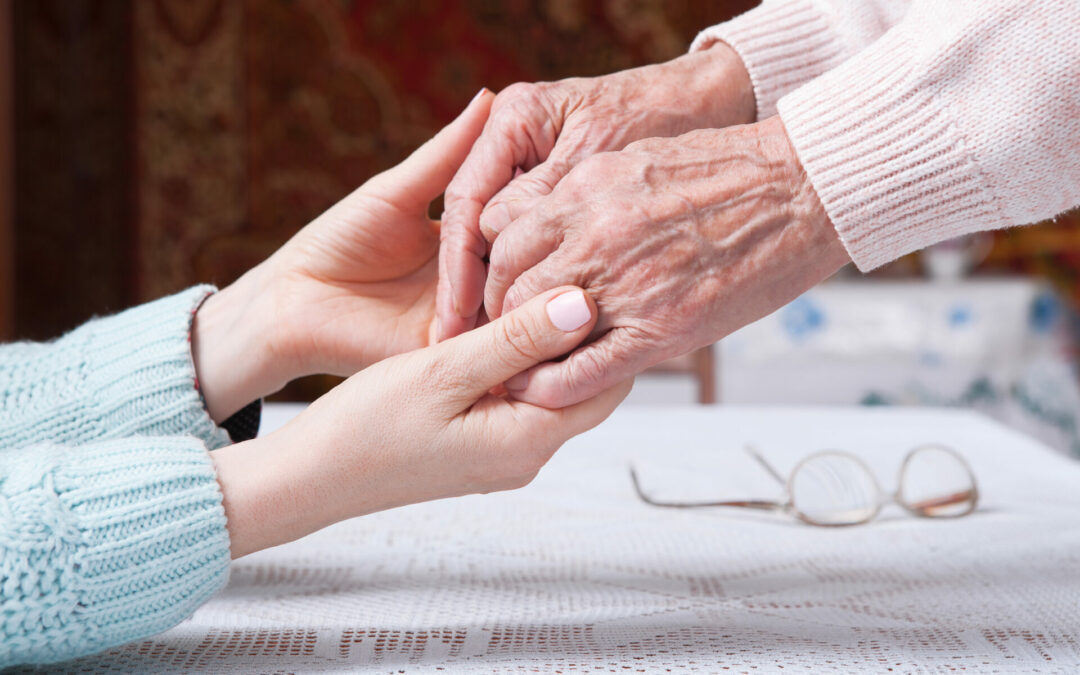Contents
Caregiver Tips Help Keep Things In Order
People who look after old-timers use caregiver tips to manage everything. In elderly care, the affairs of seniors and their caregivers need to have a structure. It is to avoid and deal with potential and common issues. Planning can prevent frustration and confusion for seniors and those responsible for them. Folks get to use time right when things go well. So it would be wise to consider knowing these suggestions to handle most if not all things in the care of the aged.
These caregiver tips for everyday life address various issues. On the part of the care provider, these may stop things from being overwhelming, tiring, and scary. Retirees would also feel confident and safe in their environment. That is while having some independence in their lives. Thus these caregiving recommendations are quite essential for paid and family caregivers.
Before Applying Caregiver Tips
Caregiver organization tips are important but applying them requires strategy. Take note that not all seniors are the same. Also, caregivers have unique styles and preferences. So it is fundamental to know the people involved in the elderly care before anything else.

Things To Consider
- Be familiar with the elder to take care of. Get to know the person by name and discover his or her attributes. This involves knowing the individual’s strengths and weaknesses. Old-timers may be capable of doing physical effort but have trouble with how they think. Some are in good shape but are uncooperative. So we may want to take note of these things.
- All caregivers have different educational backgrounds, skills, and preferences. Some might can perform better than others in taking care of old people. Others have limitations but are open to learning new things to apply. Each person has their way of doing things. As caregivers, we must list what we know and can do before taking action to help elders.
Make A Schedule Of Things To Do
One of the most useful tips for everyday life is to make a schedule to follow. In caring for the elderly, having a timetable can help a lot. This doesn’t mean making a strict one. Rather, it’s having a calendar with flexible activities included. So establishing one is an example of caregiver tips that is a must.
Strategies In Creating One
- Include routine activities. Doing the same things create habits. Routines make things easier for caregivers and those they look after. They establish cooperation and develop muscle memory for both parties. Examples of these are having plans for medication intake, bathing, meals, and exercise. Of course, this includes leisure for both too.
- Have set activities with substitutes. Sometimes, things don’t go as planned. Thus have alternatives to spend time well. If not, make it so that it’s possible to adjust some things to do. For instance, meals are important at certain times of the day but don’t always have to be at the same time. Old-timers can take a shower daily or every other day, depending on their condition. So always leave room for adjustments.
- Have a plan where caregivers and old-timers have consecutive tasks together and apart. This is important in caregiver tips. There must be a balance between helping seniors and leaving them to do things by themselves.
Benefits Of Having A Line Up Of Activities
- A schedule avoids elderly confusion since it guides seniors on what to do. It also provides caregivers with tips for everyday life so they won’t forget. Old-timers and those who tend to them handle tasks better with a plan.
- Those involved in elderly care have better stress levels. Organizing may even grant satisfaction and happiness. Also, having a flexible schedule prevents panicking and wasteful use of resources. Rather, it helps in establishing routines, reducing mistakes, and accomplishing goals.
Medication Caregiver Tips
Old people and their caretakers often make use of things to help them manage drug therapy. Thus a lot of people depend on pillboxes and similar organizers. But, more often than not, in elderly care, it takes more than knowing what type of drugs to take and when to have them. Many factors can affect the seniors’ intake of medications. So planning and not only using tools is necessary for this one.

Pills can run out when we least expect them to. Authorization of insurance companies may be necessary to get the needed medications. Pharmacies don’t always have the right pills to dispense. Bad weather and other unexpected issues might occur. But old people may need particular drugs at specific times and dosages. So caregivers must have prescriptions for and have reserved remedies in advance.
Other Caregiver Support Tips
- Many geriatric patients have various pills to take. Some even go together during particular times. To address this issue, a medication system is necessary. Senior caretakers and even old people can use an electronic calendar for reminders. It can ensure correct intake of maintenance and even special medicines. Thus it also makes sure that treatment or support goes well.
- Prepare drugs ahead of time. This means cutting, crushing, and mixing things with pills minutes before administration. It’s how doctors, nurses, and other healthcare providers do it. Home or family caregivers can do the same to save time and ensure correct drug delivery.
Using Tools As Part Of Caregiver Tips
Other practical caregiver tips for everyday life involve using tools. After all, items are there to make people’s lives easier. So why not use them in geriatric care? But, in using them, we need to consider looking at the needs of the elders we’re helping. Recommended products are useful but not to all seniors. The point is to only get those that apply to the elderly involved.
Use Practical and Hospital Supplies
The goal of utilizing these things is to help elders with their activities of daily living. Part of the caretaker organization tips involves making these available and usable. They help make it easier for old people to achieve semi-independent living. Thus care providers have them as solutions to geriatric conditions.
Below are the common ones homes and care facilities have for geriatric patients.
The Items With Caregiver Support Tips
- Mobility devices. Examples are wheelchairs, crutches, canes, and walkers. They are helpful but caregivers need to know how to help seniors with them. This means assisting the elderly use them in the right way and with the utmost independence.
- Safety items. These would be eating utensils and handrails or bars for standing and ambulation. A call button for help and bath lift fits this category too. With these, it would be easy to help old people eat and do things with less aid or by themselves. Homes and medical facilities have plastic spoons, forks, and cups that are easy to see and hold. Safety bars are available in areas that old people visit. Some wear emergency pendants and have bathrooms with bath lifts for safe bathing. These things give peace of mind to care providers and seniors.
Emergency Prevention and Response Tips For Everyday Life
Measures for crisis prevention and preparedness are important caregiving tips for caregivers. These things allow elders and caregivers to feel confident in living every day. So older adults and their caregivers must know what to do in the event of an emergency.

This is also to stop worries and also avoid confusion when trouble comes. There’s no telling what problems may arise out of the blue but it’s best to have a sense of readiness at least.
For this one, what could help is having supplies to respond to problems. They could be assistive devices or items for emergency response. The training or instructions to use them must be there too. At least, with these things, you would worry less wherever you are.
Specific Plans
There are many caregiver tips for everyday life that apply to this section. Here are some examples.
- Have a first-aid kit ready and make it accessible to those who can use it. It’s to have something ready to help the elderly cope with injury or disease right away. Yet it’s for times when physicians and other healthcare experts are absent.
- Have the contact details of substitute caregivers for emergency substitution. An elderly caretaker may become absent due to personal issues. So having a temporary replacement would be fitting.
- Make sure that the environment surrounding older adults is safe. Free it of clutter or anything that could cause mishaps.
Remember To Focus On Self-Care Too
Caring for one’s mind and body is important too. As caretakers of older adults, we tend to forget about ourselves sometimes. So we must make an effort to remember and apply self-care measures. This is even if it involves spending resources or taking short breaks from working. These are healthy caregiver tips that may even make people productive.
Self-Care Methods For Caregivers That Help With Organization
- Make time for eating, fitness, hygiene, leisure, and sleeping.
- Nutrition is important to caregivers. That would be since having adequate food and water makes a person function well. Leisure and sleep promote recovery and improves mood. You could only work well to take care of someone else when you also treat yourself. So have nutritious and tasty food while having time for fun and sleep. It will help you think and do better.
- Being active helps with weight management, conditioning, and strengthening. With these things, you could stay fit, healthy, and functional. Thus spend time doing workouts before or after caregiving. Yet remember to focus on your hygiene too. Bear in mind that cleanliness treats and prevents disease. These things may aid you in your performance as a caretaker and in staying well.
In Conclusion
The caregiver tips that keep matters organized are available. It’s only up to the people reading them to see their value. But, in most cases, they aid the folks helping the elderly manage their tasks better. The recommendations also help avoid issues. Still, they allow seniors to have peace of mind and have the most independence. Thus they deliver satisfaction and certainty between caregivers and older adults.
The article covered ways to address elderly issues. It pointed out scheduling and planning for medication intake as relevant and important. Also, it included the use of tools and emergency prevention and response measures. These make things systematic for caretakers and seniors in facing reality and possibilities. So they are worth considering in keeping things right.
Read More
Caregiver Stress: Tips For Taking Care Of Yourself





